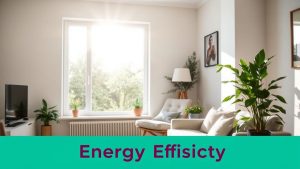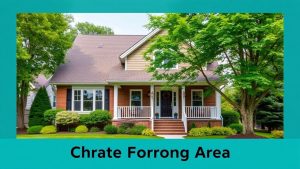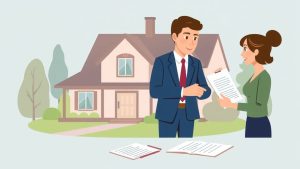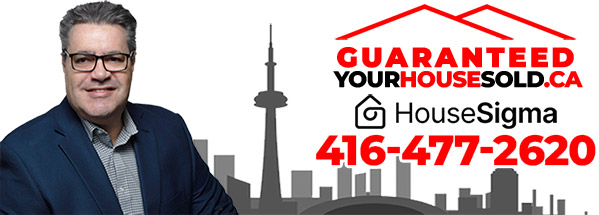Purchasing a home is a major life decision for most people, and it can be accompanied by a sense of anxiety and doubt. However, this is a completely normal reaction. To navigate this uncertainty and remain optimistic throughout the process, it is crucial to have a thorough understanding of the home buying procedure. This guide aims to address these concerns by highlighting the ten critical steps to purchasing a house in Ontario. It also provides insight into the significant factors to consider and the expenses to account for when working towards your acquisition.
Before embarking on the home buying journey, it is essential to assess whether buying is the right choice for you. This may entail:
- Comparing the expenses of renting versus owning a home.
- Recognizing the emotional rollercoaster that buying a home can be.
- Saving for a down payment and creating a budget for expenses throughout the process.
Step One to Owning a Home: Saving for a Down Payment
Building up enough financial stability to set aside money for a down payment is the first and foremost crucial step towards becoming a homeowner. In the province of Ontario, a minimum down payment of 5% is required for properties priced under $500,000. For homes ranging between $500,000 and $1,000,000, a 5% down payment is required for the first $500,000, and 10% for the remaining amount. Lastly, for properties priced above $1,000,000, a 20% down payment is mandatory. To determine the approximate down payment amount you will need, our down payment calculator is an excellent resource to help you get started.
In any scenario, having a sizable down payment of at least 20% grants you added flexibility during the home buying process. Additionally, it saves you thousands of dollars on interest payments and eliminates the need for mortgage insurance, which can significantly increase your overall cost. In most cases, the following CMHC premiums apply:
Down Payment (% of Purchase Price) CMHC Insurance (% of Mortgage Amount) 5-9.99% 4.00% 10-14.99% 3.10% 15-19.99% 2.80%
As Toronto’s average sale price exceeded $1,000,000 in 2021, and prices continued to surge throughout Ontario, starting early in establishing a down payment fund can be crucial. Fortunately, for first-time homebuyers, the federal and provincial governments offer various programs to help, including:
- The Home Buyers Plan, which allows you to borrow up to $35,000 from your Registered Retirement Savings Plan (RRSP) for a down payment,
- The First-Time Home Buyer Incentive, with the Government of Canada providing up to $25,000 in shared home equity, and
- Provincial and Municipal Land Transfer Tax rebates, covering up to $4,000 in Ontario, along with Municipal rebates for those purchasing homes in Toronto for up to $4,475.
Step 2: Developing Your Credit Score and Ensuring Stable Income
A solid credit score is a crucial factor that lenders take into account while assessing your creditworthiness, making it an essential aspect to focus on when securing a mortgage for your home. In order to qualify for an insured mortgage loan, your credit score should ideally be at least 600. Moreover, having a higher credit score can not only impact your mortgage interest rates but also broaden your lending options, as well as the number of lenders who are willing to grant you a loan.
The process of building a good credit score commences well before you plan to buy a home, and requires proactive measures to improve your credit. Some of these measures include avoiding late payments, maintaining a low credit utilization rate (total outstanding debt divided by the total credit limit across all accounts), ensuring a good credit history, and limiting credit inquiries on your account.
In addition to having a good credit score, having a stable income source can significantly simplify the process of securing a mortgage. When you become a homeowner, you become responsible for various expenses such as home maintenance and repairs, yearly property taxes, and home insurance premiums. Having a steady income that allows you to address any unexpected expenses that arise will place you in a more secure position. In fact, your lender may even require you to submit a letter of employment to assess the stability of your income. If your income is irregular because you are self-employed or work on a contract basis, it’s essential to plan in advance and set aside some money as an emergency fund. Additionally, consider purchasing home insurance online.
Step 3: Evaluating Your Affordability
In addition to steps one and two, your down payment amount, credit score, and income all play a role in determining what you can afford when it comes to purchasing a home. Several factors contribute to housing affordability, including the size of your down payment, your Total Debt Service (TDS) ratio, which takes into account your annual housing-related and debt expenses divided by your gross income, your Gross Debt Service (GDS) ratio, which considers your annual housing-related expenses divided by your gross income, and your current monthly expenses, which should not exceed your after-tax income.
To simplify the process of determining your affordability, you can use an affordability calculator. However, it’s important to consider not only what you can afford, but also how much you’re comfortable spending to find a home that you’ll feel good about. To stay on track with your monthly housing expenses once you move into your home, putting together a budget can be helpful.
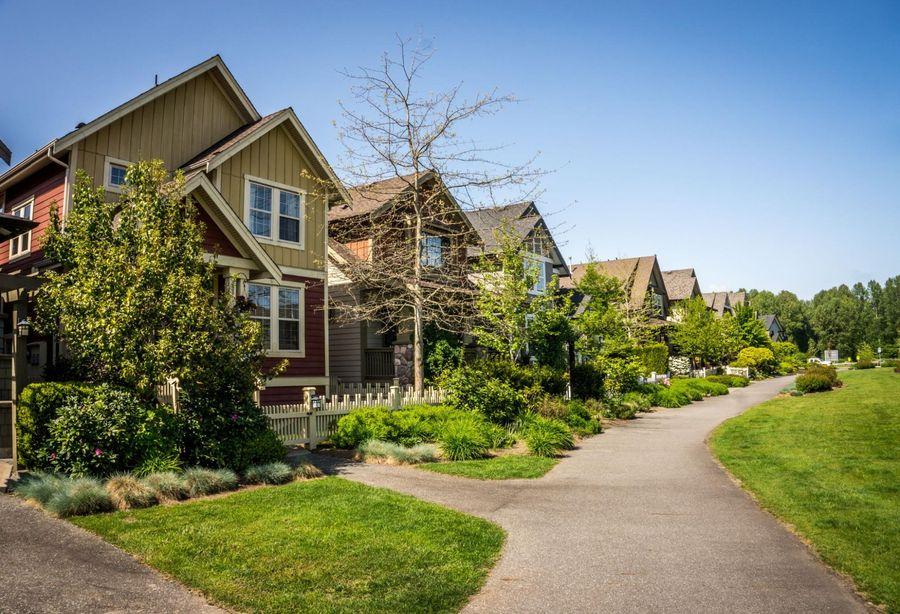
Step 4: Selecting a Location
Once you have determined how much you can afford and what you’re comfortable spending on a home, it’s time to decide where to buy. Commute time, access to public transportation, neighborhood amenities, safety, and school rankings are top-of-mind considerations for many new homebuyers.
For young families or prospective parents, being in a catchment area for a good school is often a crucial factor. However, it’s important to note that living near highly ranked schools may come with a high cost of living.
When considering your daily commute, it’s essential to choose a location that is comfortable for you. While choosing a neighborhood outside the city may provide more space for your budget, it may also add hours to your daily commute. Additionally, being further away from the city may make public transportation less feasible, so it’s important to carefully consider the neighborhood you choose.
It’s worth noting that urban homes tend to be smaller than suburban and rural homes but may also be more expensive. To compare locations and find where you can get the most space for your budget, you can look at the price per square foot.
Step 5. Estimating the Closing Costs
Typically, it’s recommended to allocate approximately 3-5% of the property’s purchase price as a budget for closing costs when acquiring a house in Ontario. The closing costs usually comprise of various expenses, including the Land Transfer Tax and Lawyer & Legal Fees, which are the two most significant components.
When buying a home in Ontario, the Land Transfer Tax is a crucial expense to consider in your budget. It’s a tax charged by the province and is based on the purchase price of the property. The cost varies based on the property’s location, and first-time buyers may qualify for a rebate.
In addition to the Land Transfer Tax, it’s also essential to budget for Lawyer & Legal Fees, which includes fees for document preparation, title searches, and registration. A lawyer’s services are essential during the home buying process, and they can provide guidance on various legal matters.
In summary, when budgeting for closing costs, it’s recommended to allocate between 3-5% of the property’s purchase price. The Land Transfer Tax and Lawyer & Legal Fees are the two most significant expenses to consider when acquiring a home in Ontario.
| Land Transfer Tax | Provincial & sometimes Municipal tax on the transfer of property. | Calculated using a marginal tax bracket system based on your purchase price. |
| Lawyer & Legal Fees | Lawyer acts on your behalf in the purchase and mortgaging of the property. | Varies depending on the work; can cost between $500 & $1,500. |
Other Costs
| Type | What it is? | Estimated Cost? |
|---|---|---|
| Property Survey | Survey Certificate required by your mortgage provider & lawyer. | Between $350 & $600. |
| Home Inspection | A professional looks for hidden problems in the property before the sale goes through. | Varies with property type, usually ~ $500. |
| Property Appraisal Fee | To confirm the selling price is reasonable for the market (for the mortgage lender). | Generally between $300 & $500; lenders may cover the cost however. |
| Title Insurance | Insurance in case of dispute about who’s land the property is located on. | ~$200, depending on the insurance company. |
| Government Registration Fee | Paid when your lawyer files documents on your behalf. | Varies by document, in total ~$200; may be included in overall legal costs. |
| Estoppel Certificate Fee | Certificate with condo board financial statements, your fees, penalties for infractions. | ~$100 |
Step 6: Obtain Mortgage Pre-approval and Search for the Optimal Interest Rate
Securing mortgage pre-approval before embarking on a house hunt allows you to lock in an interest rate for up to 120 days while also providing an estimate of the amount you can borrow. Pre-approval is essentially a written agreement between you and your lender. However, obtaining pre-approval does not prevent you from seeking out the best interest rates. Rather, pre-approval equips you with valuable information that allows you to plan ahead, including how much you can afford, what interest rates are available to you, and what your monthly payments might look like.
When it comes to finding a mortgage lender, opting for the lowest interest rate can result in significant savings on monthly interest payments.
For instance, imagine you buy a $600,000 house and pay a 20% down payment of $120,000, which exempts you from mortgage insurance. After obtaining pre-approval, you secure a 5-year mortgage of $480,000 with a 25-year amortization period and a 3.2% interest rate. This implies that you will pay $71,110 in interest over the 5-year term.
However, if interest rates drop between the time you secure pre-approval and the time you require a mortgage, you might come across similar-term mortgage rates at 2.6%. By exploring and settling for a comparable rate, you could save up to $13,580 in interest payments, reducing your interest expense to $57,530 instead. This underscores the importance of always searching for the optimal interest rate.
Step 7: Find an Excellent Real Estate Agent
Finding a real estate agent that suits your needs and has a thorough grasp of the market you’re exploring is crucial. Especially for first-time homebuyers, an experienced agent can provide essential clarity in a new situation.
An excellent real estate agent can help you navigate the complexities of buying a home, from identifying suitable properties to negotiating prices and handling legal paperwork. They can also provide insights into market trends and help you make informed decisions.

Step 8: Search for Homes in Your Budget
While it can be tempting to broaden your search criteria and increase your budget, it’s essential to keep looking for homes that you can afford and envision yourself living in. Begin your search online through local MLS websites and enlist the help of your real estate agent to show you potential properties.
To narrow down your search, it’s helpful to create a list of “must-have” and “nice-to-have” features when evaluating specific properties. Keep in mind that the home-buying process can be iterative, and you can always adjust your search if certain features or neighborhoods don’t meet your needs or are too competitive.
Step 9: Make an Offer
In Toronto, Ontario’s highly competitive housing market, it can be challenging to secure a home due to the record low housing supply and interest rates. Even in Ontario’s most affordable housing markets, demand is high, making it critical to act quickly.
Your real estate agent can provide valuable guidance when deciding on offer details such as price and conditions.
Step 10: Closing Day
Congratulations! You have reached the final and most exciting step in the home-buying process. Take a deep breath and appreciate the moment. With the help of WOWA’s closing cost calculator, you should be aware of any expected costs, as discussed in Step 5. Once the real estate agent hands you the keys, the house is officially yours!
Before moving in, consider completing pre-move-in renovations such as painting, scheduling a full-house cleaning, changing the locks, informing service providers, and letting your family and friends know.
Conclusion
Purchasing a home can be a daunting and stressful process, but having a team of experienced and knowledgeable professionals to guide you along the way is crucial. Your real estate agent, mortgage broker, and loved ones are there to support you, so it’s essential to trust the process. Stick to the plan by saving for a down payment, determining your ideal location, obtaining pre-approval, finding a reputable agent, submitting an offer, and closing. With these steps in place, the process will work out in the end.



